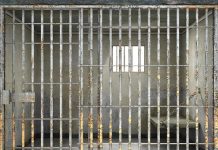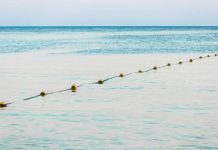
Nicaragua’s decision to strip 135 political prisoners of their citizenship and expel them to Guatemala has intensified global condemnation of President Daniel Ortega’s regime.
At a Glance
- Nicaragua revoked the citizenship and seized the property of 135 political prisoners.
- The Supreme Court claimed those expelled were convicted of acts against the country’s sovereignty.
- The expelled individuals were released and sent to Guatemala with plans to relocate to the U.S.
- American authorities stated no concessions were made for the prisoners’ release.
- Nicaragua has a history of cracking down on dissent.
Nicaragua Strips Citizenship and Seizes Property
Nicaragua has stripped 135 political prisoners of their citizenship and property and expelled them to Guatemala. The Supreme Court of Justice claimed these individuals had committed acts threatening national sovereignty, including terrorism and economic destabilization. This move underscores President Daniel Ortega’s tightening grip on power and further amplifies international concerns regarding human rights violations. The government stated the prisoners would have no legal or civil rights in Nicaragua.
Upon expulsion, the former prisoners were sent to Guatemala under an agreement facilitated by the U.S. and Guatemala, with plans to relocate them to the United States. American authorities have emphasized that no concessions were made for their release. The release, described by analysts as a tactic to harm opponents while mitigating international criticism, reflects Ortega’s continuing strategy to manage dissent through drastic measures.
Historical and International Context
This incident is not isolated. Last year, a similar situation unfolded involving 222 political leaders and activists who were also stripped of their citizenship. Today, the released individuals face immediate uncertainty, struggling with statelessness and the loss of their property. The U.S. has offered them expedited refugee procedures and legal avenues for residency. Additionally, a U.N. report recently criticized Nicaragua for severe human rights violations and political persecution.
“Nicaragua does not meet even the minimum reasonable standard of judicial independence,” wrote Simon in a release. “Continued violations are leaving entire sections of the population in a state of defenselessness.”
Released prisoners have recounted their experiences in media interviews. Pedro Gutierrez, one of the prisoners recently transferred to Guatemala, expressed his shock over the rapidity of these events. Ortega’s government has repeatedly demonstrated its willingness to expropriate and denationalize its citizens as a form of punishment and deterrence against political activism.
While others offered support to 135 unjustly detained Nicaraguans after their release, Ortega and Murillo ordered them stripped of their citizenship & seized their assets. These continuing inhumane and cruel acts only serve to further isolate Nicaragua.
— Brian A. Nichols (@WHAAsstSecty) September 10, 2024
Global Response and Future Implications
The United Nations has warned that new Nicaraguan laws could further repress opposition. These laws impose severe penalties, including up to 30 years in prison and property confiscation for “cybercrimes” and “offenses against the State.” The judiciary, which is influenced by President Ortega and Vice President Rosario Murillo, announced the latest actions, revealing an alarming trend toward authoritarian governance. Ortega and Murillo’s regime continues to shutter NGOs and civil society organizations, with over 5,500 shut down since 2018, including Save the Children.
“A few get freed, some get newly incarcerated and then others get freed,” he wrote on the social media platform X. “This is how this dictatorship has turned Nicaragua into a giant prison,” said McFields.
As of June 2023, there were 271,740 Nicaraguan asylum seekers worldwide, with 18,545 obtaining refugee status. The ongoing crackdown and subsequent international sanctions by the U.S. and EU continue to fuel the exodus and highlight the regime’s profound disregard for human rights. In such circumstances, the international community’s role in advocating and providing asylum to these affected individuals is more critical than ever.
Sources:
- Nicaragua strips citizenship from 135 prisoners released to Guatemala
- Nicaragua strips nationality of 135 exiled political prisoners
- Nicaragua strips nationality of 135 exiled political prisoners
- Nicaragua Strips 135 Ex-Detainees of Citizenship
- Nicaragua Strips Nationality Of 135 Exiled Political Prisoners
- Nicaragua strips nationality of 135 exiled political prisoners







